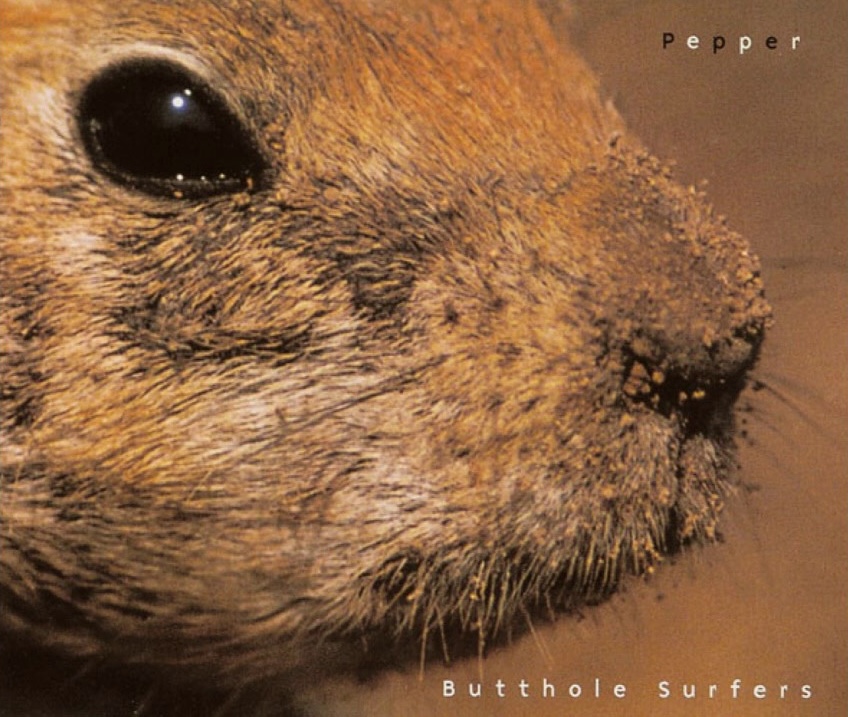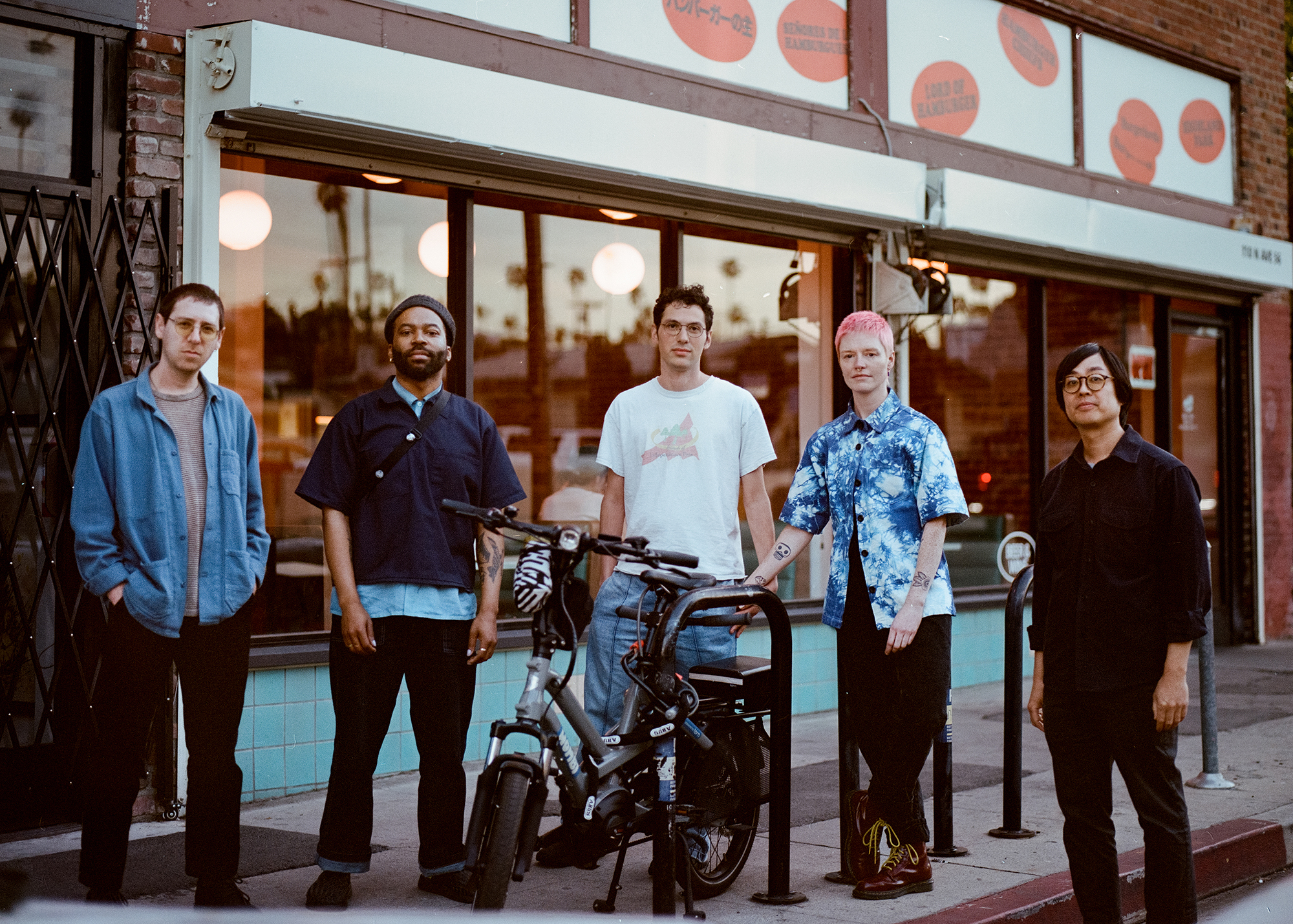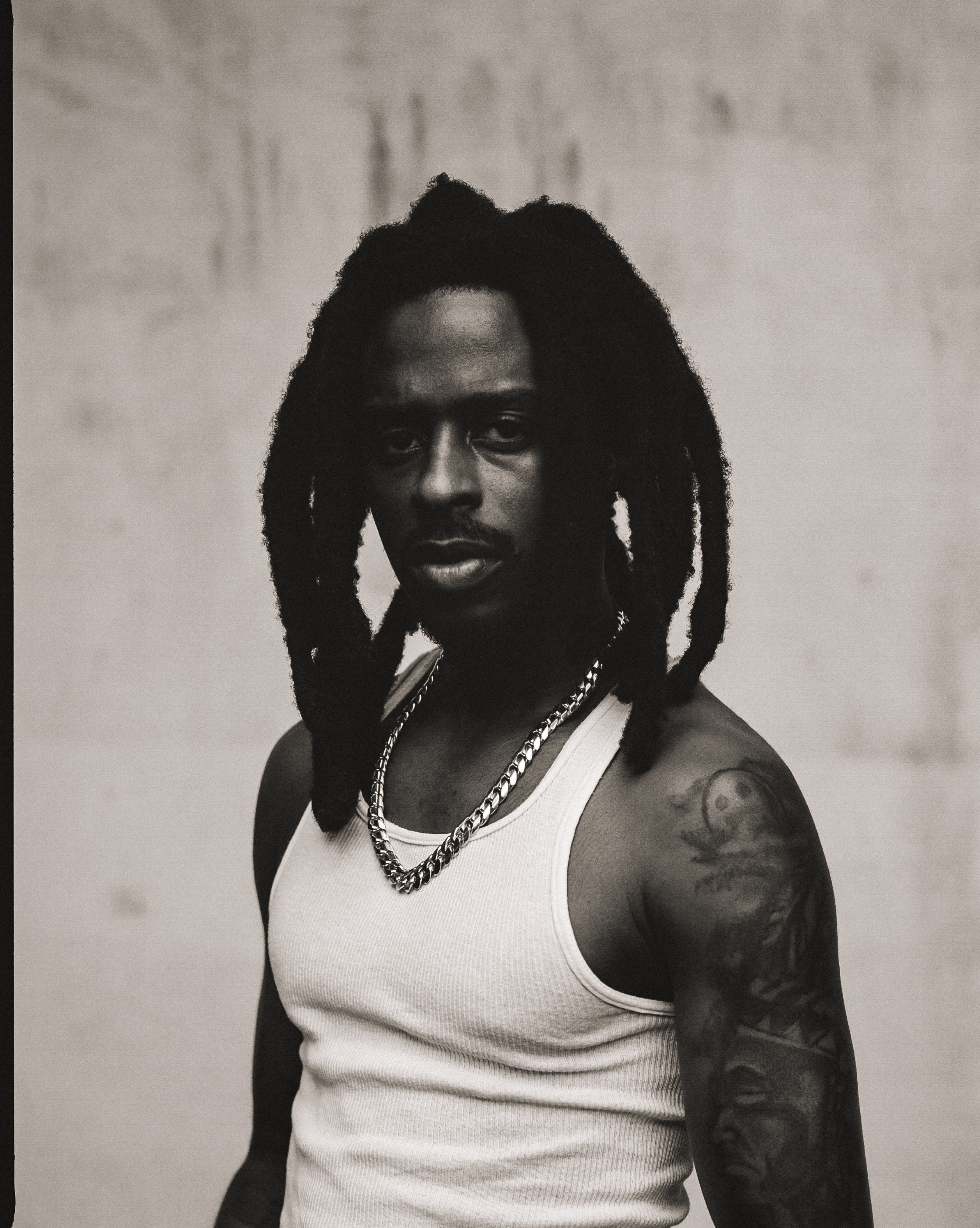Chris Brown stayed busy these last few weeks adding to his long rap sheet of objectionable behavior. The troubled pop star launched his latest notoriety campaign the night of Sunday, Jan. 27, when he brawled with Frank Ocean over a parking space outside a Los Angeles recording studio. It is unclear who instigated the scuffle, but you could be forgiven if your first instinct was to blame Brown (a conclusion reinforced by Brown's infantile decision to sit out the standing ovation when Ocean beat him at the Grammys). Ditto if you believed the Los Angeles County District Attorney's 19-page report last week accusing Brown of skimping on his court-ordered community service despite Brown's lawyer's vehement promise that he can prove otherwise. The former teen idol has gone above and beyond to earn his reputation as a cackling movie villain with a time-bomb temper and zero shame. First came the detonation: Brown beat up his girlfriend, Rihanna, on the eve of the 2009 Grammys and pled guilty to felony charges in exchange for a plea deal that kept him out of prison. The fallout has been nearly as poisonous: Branding himself as a victim by naming his album Forgiving All My Enemies, lashing out at his "haters" with vitriolic Twitter screeds and defiant YouTube clips, answering those who dare question him about his history of violence with a chair through the window.
Brown's run of unrepentant behavior has been so audaciously gratuitous that raking him over the coals has become a sport. On Facebook, Conan O'Brien recently called totalitarian North Korea "the Chris Brown of countries." In December, The Onion posted a satirical op-ed in which Brown himself wondered how anyone could support or defend a guy like him; later, they followed the Brown/Ocean brawl with the headline "Nation Would Not Be Surprised At This Point If Chris Brown Allegedly Traveled Back In Time And Punched Anne Frank." Their cohorts at The A.V. Club half-jokingly dubbed Brown's pattern of repulsive activity "asshole performance art" -- legendary trolling that runs the gamut from a blinged-out "Oops!" necklace to a neck tattoo that creepily resembles Rihanna's battered face to allegedly using the pickup line "I promise not to beat you." So yeah, he isn't doing himself any favors.
Yet, other than a quick hiccup in the immediate aftermath of his arrest, Brown's career has continued to flourish. When he's not tussling with Drake in the club, the two performers have been fighting it out to see who can cram more singles into regular rotation at once. Lots of big-name rappers and singers have jumped on a track with him. Last year the Grammys welcomed him back, pulled him on stage and handed him an award. Even Rihanna took him back -- with Oprah's blessing -- first publicly embracing Brown as a duet partner, then as a bed buddy. The people who worry about this stuff have devoted countless hours to wringing their hands over it, chastising #TeamBreezy for supporting the career of such a wretched person and giving Ms. "S&M" the #smh treatment for allowing her abuser a second chance.
The same day news of Brown's fracas with Ocean broke, Surfer Blood released the first single from their forthcoming second album, Pythons. The Florida indie rockers achieved moderate breakout success for their hook-laden canonical cocktail of a debut album, Astro Coast, the kind of success that wins you an opening slot with the Pixies, a middling font on every festival poster, and your music in rotation at the PUMA Store. It was a deeply derivative yet highly enjoyable record, among 2010's most delectable empty calories. So the arrival of the Weezerly "Weird Shapes" should have been an occasion for shrugs and blank stares at worst. Instead, it forced Tom and the commentariat to grapple once more with frontman John Paul Pitts's alleged pattern of violence toward his girlfriend, which came to light last year when Pitts pleaded no-contest to a domestic charge that involved pinning her to the bed and attempting to shove his fingers in her mouth. And grapple they did! While some corners of the internet rushed to tar and feather Pitts, a thoughtful debate simmered here: Where do we draw the line between an artist's reprehensible behavior and his art? How we decide who gets demonized and who gets a free pass? "Hate the sin, love the sinner," but what to do about the sinner's hit record?
These are old questions -- like, Wilhelm Richard Wagner old -- but they're as relevant as ever in the ultra-sensational, hyper-judgmental era of internet comment wars and the 24-hour news cycle. Every controversy, pseudo-controversy, and non-controversy is analyzed and reanalyzed, butted and rebutted, raked over repeatedly until it disappears into static like one of William Basinski's Disintegration Loops. Prolonged exposure, debate and dissection blurs into a wave of noise. Eventually that wave crashes and recedes, washing away the initial emotional response and the nuanced conversation, leaving behind a normalized, oversimplified, crowdsoured conventional wisdom. Consider the Manti Te'o scandal: Deadspin's initial story was about how the media universally ran with an outright lie that could have been debunked with some simple fact-checking. Subsequent coverage, of course, focused on figuring out when Te'o realized his girlfriend didn't exist. Once the spotlight shifted to hoax constructor Ronaiah Tuiasosopo, the story had completed its mutation into a reality TV-style freak show, something else to feed the public's craven hunger for gossip. A.V. Club film editor Scott Tobias's tweet proved prophetic: "The longer the inquiry into what Manti did or didn't know, the further we get from the point of that @Deadspin story."
So it went with teenage Interscope signee Chief Keef after he used Twitter to laugh at the gang-related murder of rival Chicago rapper Lil JoJo. Gang violence depicted in rap music, a phenomenon so deeply entrenched that it barely registers anymore, had suddenly snapped back to real life, with teenagers as the key players in the bloodbath. Seemingly everyone with even a marginal interest in hip-hop, gang culture, and the urban poor chimed in to demonize or defend Keef. Longtime Chicago music critic Jim DeRogatis chided Kanye West and Interscope for giving Keef a voice, then proclaimed that Keef should be condemned for his lyrics the same as if he released a song about the glories of Sandy Hook. At Gawker, Mychal Denzel Smith blamed Keef's culture for spurring self-hatred: "No one teaches black boys to love ourselves until it's raining." At Complex, David Drake and David Turner rejected the notion of Keef as Interscope's puppet and called on readers to view him not as an avatar for societal problems but as a fallible-yet-responsible human being. Word counts kept piling up, the moralizers smugly and solemnly passing judgment, the reformers mournfully decrying the societal ills that hardened Keef's heart, those seeking to bump "Love Sosa" with a clear conscience squirming their way to a rationale.
There wasn't much clarity to be found atop the mountain of information and opinions, yet a culture consumer has to stake his or her tent somewhere. As someone who identifies with Tom's enjoyment of Keef's music but also thinks DeRogatis's critique isn't entirely off base, there was cognitive dissonance aplenty. My initial reaction to JoJo's death was that "I Don't Like" was ruined. How could I enjoy this music having glimpsed what kind of darkness was brewing behind it? That kind of thinking sent me on the same slippery slope that emerged in the Surfer Blood comments. If I were to discard Chief Keef, what else would have to go? How much of my iTunes library was tainted? Where is the line between excusable and inexcusable musicians? Should that line be fudged depending on the quality of the music? It's all more than a little murky.
Ultimately, I kept blaring Keef's music, and I don't intend to stop listening to Surfer Blood or Chris Brown either, as long as their songs keep pleasing my ears. For one thing, I'm uncomfortable with blacklisting certain artists as "the bad guys." Maybe it's backlash from my prior experience in a Christian bubble, but discarding the "evil people"'s music seems hermetic and judgmental. There's a wide world of creation out there, and once I start rooting out the creators whose character offends me in some way, I quickly find myself rocking out to silence on an exceptionally high horse. If we're going to pronounce that a person's music should now be ignored because of his or her crimes, why not hand out scarlet letters, too? And let's be sure not to sit in any chairs built by murderous carpenters. Still, there is a lingering pull toward singling out and villainizing those who have so blatantly flogged the conscience, a curdling of the stomach that comes from doling out money and attention to someone whose infractions against humanity are so overt and/or ongoing. There is an inherent aspect of hero worship in pop music, and nobody wants to worship a criminal. Except, uh, our culture worships criminals all the time.
It reminds me of the longstanding conversation about TV drama's recent "Golden Age." We're long past good guys in white cowboy hats and bad guys in black cowboy hats. Now we root for charismatic protagonists from Tony Soprano to Don Draper even as they exploit, abuse and even murder those close to them. No show exemplifies this phenomenon better than Stereogum readers' favorite series, Breaking Bad. We threw our sympathies behind Walter White, a pathetic weakling schoolteacher and terminal cancer patient nobly dipping into dirty business to provide for his family, only to watch him become a man willing to murder children to get what he wants. He's decidedly a villain now, yet a part of me still sympathizes with Walter and cheers when he manages to will himself out of a corner. Grantland's Andy Greenwald nails it: "The central conceit of Breaking Bad and, really, all of these lauded cable shows about complicated men is that personal interests trump those of the society. On Mad Men, Sons Of Anarchy, hell, even Copper, we never stop caring about our heroes' survival, even as others suffer. Tony Soprano was a sympathetic criminal, happiest when eating onion rings with his family, not betraying them. Breaking Bad, by contrast, explodes the fallacy that any good can come from evil; by setting us up to wish otherwise, it makes the viewer complicit in the criminality." The fourth wall makes for a comfortable buffer, but we don't pump our fists for real-life Walter Whites; we just wave them angrily.
Something similar is going on in music. The pop charts are, obviously, a playground for misogyny, violence, greed, exploitation, ego-tripping, and plenty of other behavior ostensibly condemned by society. Give or take an angry PTA parent or moralistic politician, this stuff is happily consumed and widely celebrated. Put the same content in a viral video or a TMZ headline, though, and watch the outrage unfold. There is a steep disconnect at play, and I'm as guilty as anybody. Lil Wayne and Drake's "She Will," for instance, is basically the story of two superstars plotting to use their money and power to manipulate strippers into fucking them. In real life, if I witnessed this kind of behavior, I'd be upset about it. Phrase it in evocative slang, set it to a crystalline hook, and plop it into sweeping, darkly seductive Noah "40" Shebib production, though? Suddenly it feels like something else, a morally ambiguous fantasy world to be explored and enjoyed from a safe distance. It's easy to detach yourself from the content and vibe out. Back when my wife and I were dating, we blasted "She Will" constantly on the car stereo. This creeper anthem was the closest thing we had to "our song." We even joked about making it the first dance at our wedding. Had those guys showed up at the reception and started scheming about how to use the bridesmaids as their temporary playthings, the joke would be over real fast.
We have a tendency, it seems, to suspend judgment on morally questionable art when it entertains us only to dole out judgment mercilessly -- and distance ourselves rapidly -- when its content spills into real life. Conventional wisdom says people like Chris Brown and John Paul Pitts need to pay, that their crimes against humanity merit justice beyond what the courts can dole out. And in a sense they will pay; their violence against women will always be hanging over their heads, all the way to the obituary. Accountability is important. Those in power should be scrutinized. Evil should be exposed. Justice should be served. Certainly any Brown supporter trying to argue that he has changed or that he is misunderstood is ignoring the facts. But I can't abide the notion that he and Pitts should no longer be allowed to profit from recording a great pop single, that their music is more tarnished than anybody else's just because they've stumbled in such extreme and public fashion. Where is the point of no return, the border between excusable human error and blacklist-worthy offense? If these guys' sins are unforgivable, why not yours?
I understand the difference between singing about something and doing it, and I understand that arts and entertainment can be a means for exploring those dark caverns of the soul, for tinkering with our moral compass. I'm not trying to protest that kind of experience. Nor am I arguing that Brown or Pitts beating up their girlfriends is anything but abhorrent, or that they should "get away with it." What each of those men did was a blot on our species, so of course it affects our perception of their music. But we've all got our blots, you know. The fact that we need art as an outlet for our less wholesome impulses proves that none of us is so pure. Given how frequently our culture looks to the dark side for stimulation, I wonder how much of the bile being spewed at villainized entertainers is simply fear of seeing ourselves in them. How often do we try to distance ourselves from our worst impulses by loudly and dramatically condemning them in other people? What better way to feel like heroes than by singling out a few convenient villains? We can play high and mighty when shit gets real, call for some kind of justice where the "bad" musicians don't get to have successful careers anymore. But any lines we draw about whose music is tainted seem arbitrary to me, particularly in a culture that celebrates moral ambiguity. Where is the line between Chris Brown and, say, that angelic beacon of truth and wisdom Frank Ocean? If "Wiseman" is anything to go on, Ocean would probably argue there is no line. He'd be absolutely right.






